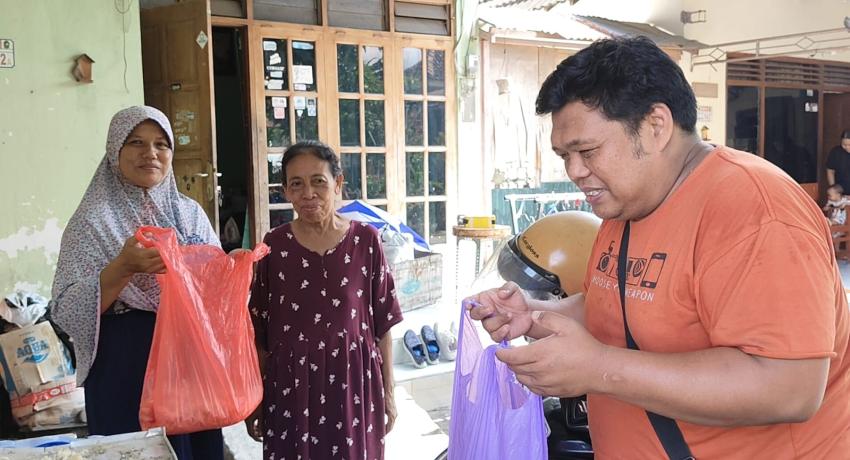The accumulation of untreated organic waste poses serious challenges, such as foul odors, health risks, and environmental degradation. To tackle these issues sustainably, Universitas Negeri Yogyakarta (UNY) has developed a community service program led by a team from the Department of Physics Education, Faculty of Mathematics and Natural Sciences (FMIPA). The initiative utilizes nanotechnology—specifically carbon-based nanomaterials—to transform organic waste into solid and liquid plant supplements, aiming to create a zero-waste community within a circular economy framework.
The program, supported by DRTPM Dikti 2024 funding, was spearheaded by Prof. Dr. Ariswan, M.Si., Wipsar Sunu Brams Dwandaru, Ph.D., and Ezra Putranda Setiawan, M.Sc., in collaboration with students Emirul Zukhruf Alkazmi Dirja and Khairunisa Fathia Kausari. Activities included socialization and hands-on practice in Warungboto Village, where household food waste was processed into nanomaterial-based supplements for plants. The program lasted approximately 40 days and engaged 40 households in RT 31, Warungboto.
The process began with the collection of organic waste from residents. This waste was sun-dried for 1–2 days, then carbonized at 200–250°C for 30–60 minutes using an oven or direct roasting. The resulting carbonized material was ground into powder and mixed with water, undergoing a soaking process for 1–2 days. The final step separated the liquid and solid fractions, which were repurposed as liquid fertilizer and planting media, respectively.
According to Wipsar Sunu Brams, the process is practical, cost-effective, and minimizes odor after the drying stage. “The tools required are commonly available in households, making this method highly accessible. However, weather conditions during the drying process can influence efficiency,” he explained.
The liquid supplement enhances soil nutrients, while the solid residue can be used for orchids or as a soil mix. This program exemplifies UNY’s commitment to sustainable environmental solutions through innovative technologies that empower communities while addressing waste management challenges.





